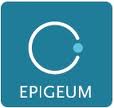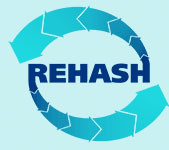Generation 4 (G4)

Generation 4 is a project co-funded by the JISC to use new technologies to assist in the creation of a more interactive model for curriculum delivery in medicine.
Core of the programme: replacement of the paper-based patient cases with interactive Virtual Patients which allow students to make realistic patient management decisions and explore the consequences of their management.
Overall intention: to create a more adaptive, engaging, competency-based style of learning which more closely matches the role of the practitioner.
More information here.
Generation 4.5 (G4.5)
 G4.5 is a continuum project from the G.4 project. This project uses the same principles as G4 to target the ethics community, whose teachers originate from a wide range of primary disciplines (e.g. law, philosophy, medicine).
G4.5 is a continuum project from the G.4 project. This project uses the same principles as G4 to target the ethics community, whose teachers originate from a wide range of primary disciplines (e.g. law, philosophy, medicine).
Overall intention: to embed Virtual Patient cases into the Medical and Healthcare Ethics curricula![]() and disseminate the G4 experience more widely to other disciplines.
and disseminate the G4 experience more widely to other disciplines.
More information here.
iEthics
 iEthiCS is a novel, state-of-the-art ethics virtual patient scenario that aims to revolutionise medical ethics education in the UK and abroad for both staff and patients, at undergraduate and postgraduate level.
iEthiCS is a novel, state-of-the-art ethics virtual patient scenario that aims to revolutionise medical ethics education in the UK and abroad for both staff and patients, at undergraduate and postgraduate level.
Project outputs: first ever for openly-available interactive Video Virtual Patient for medical ethics training, and a number of other tutor and students resources. The outputs were formally launched at the 2010 World Congress of Bioethics in Singapore, as shown here.
More information here.

ALT-EPIGEUM Award 2010 – Finalist for Most Effective Use of Video.
Repurposing Existing Healthcare Assets to Share (REHASH)
 REHASH is a Regional JISC-funded project to re-purpose in-house web-based teaching materials to a range of different educational levels.
REHASH is a Regional JISC-funded project to re-purpose in-house web-based teaching materials to a range of different educational levels.
Overall intention: to support student progress from further to higher education in medicine and healthcare. It is specifically targeted at courses which widen access to higher education, and the diploma and undergraduate programmes which follow these courses.
More information here.
